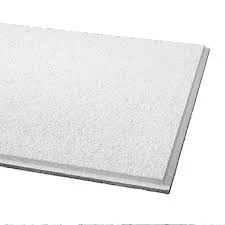- Afrikaans
- Albanian
- Amharic
- Arabic
- Armenian
- Azerbaijani
- Basque
- Belarusian
- Bengali
- Bosnian
- Bulgarian
- Catalan
- Cebuano
- Corsican
- Croatian
- Czech
- Danish
- Dutch
- English
- Esperanto
- Estonian
- French
- German
- Greek
- Hindi
- Indonesian
- irish
- Italian
- Japanese
- Korean
- Lao
- Malay
- Myanmar
- Norwegian
- Norwegian
- Polish
- Portuguese
- Romanian
- Russian
- Serbian
- Spanish
- Swedish
- Thai
- Turkish
- Ukrainian
- Uzbek
- Vietnamese
Дек . 03, 2024 16:58 Back to list
Affordable Options for Mineral Fiber Ceiling Tiles Pricing and Features
Understanding the Pricing of Mineral Fiber Ceiling Tiles
Mineral fiber ceiling tiles are a popular choice for various commercial and residential applications due to their excellent acoustic properties, fire resistance, and aesthetic versatility. As building materials undergo constant innovation and price fluctuations, it is crucial to understand the factors influencing the pricing of mineral fiber ceiling tiles. This article will delve into these factors, offering insights that aim to assist potential buyers in making informed decisions.
What Are Mineral Fiber Ceiling Tiles?
Mineral fiber ceiling tiles are primarily manufactured from inorganic materials, including mineral wool, fiberglass, and certain types of gypsum. They come in various textures and finishes, often resembling traditional plaster ceilings or offering a more contemporary look with smooth surfaces. These tiles are particularly favored for their sound absorption capabilities, which significantly reduce noise pollution in busy environments like offices, schools, and hospitals. Additionally, they boast high fire resistance ratings, making them suitable for use in environments where safety is a priority.
Price Factors
Several factors contribute to the pricing of mineral fiber ceiling tiles, and understanding them can help buyers gauge what to expect in terms of costs.
1. Material Composition The primary raw materials used in producing mineral fiber ceiling tiles play a significant role in determining their price. For instance, tiles made with high-density mineral wool often tend to be more expensive due to their superior acoustic and thermal performance compared to models that use lower-quality materials.
2. Tile Size and Thickness Like other building materials, the size and thickness of the tile affect its price. Larger tiles or those with enhanced thickness usually cost more, as they provide better insulation and durability.
3. Brand and Manufacturer Different manufacturers produce various types of mineral fiber ceiling tiles, with brands known for innovation and quality commanding higher prices. It is essential to consider the reputation and reliability of a brand when assessing cost versus value.
mineral fiber ceiling tiles price

4. Design and Aesthetics Tiles with intricate designs, patterns, or finishes generally come with a premium price tag. While basic tiles serve their functional purpose, those seeking a blend of functionality and aesthetics should prepare for higher costs.
5. Market Demand and Supply Like any other product, the pricing of mineral fiber ceiling tiles can be influenced by market dynamics. When demand surges, possibly due to construction booms or renovation projects, prices may increase. Conversely, an oversupply of tiles could lead to lower prices.
6. Installation and Labor Costs Beyond the product price, installation expenses must be factored into overall spending. Hiring professional installers to fit the tiles can vary widely in cost depending on the complexity of the job and local labor rates.
7. Environmental Considerations Eco-friendly products are increasingly becoming sought after. Mineral fiber ceiling tiles that are produced using sustainable practices or contain recycled content may have higher upfront costs but provide buyers with long-term savings and benefits, such as improved indoor air quality.
Average Pricing Ranges
As of late 2023, the price for mineral fiber ceiling tiles can vary significantly based on the aforementioned factors. On average, buyers can expect to pay between $0.50 and $5.00 per square foot for standard tiles. High-end tiles with advanced features and aesthetics may cost upwards of $10.00 per square foot. It is advisable for potential buyers to gather multiple quotes from suppliers to ensure competitive pricing and explore different product options.
Conclusion
In summary, mineral fiber ceiling tiles offer an excellent combination of aesthetic appeal and practical benefits. Their pricing is influenced by material quality, size, brand reputation, design complexity, market dynamics, installation costs, and environmental factors. Understanding these elements assists buyers in making informed choices that align with their budget and project requirements. As consumers prioritize functionality and sustainability, the demand for high-quality mineral fiber ceiling tiles is expected to remain strong, perhaps leading to further innovations and price fluctuations in this essential building material sector.
-
Transform Interiors with PVC Gypsum Ceiling: A Stylish, Durable, and Moisture-Resistant SolutionNewsMay.19,2025
-
The Smart Interior Upgrade: Discover the Durability and Versatility of Gypsum Ceiling Access Panel SolutionsNewsMay.19,2025
-
The Smart Choice for Interior Design: Discover the Value of PVC Gypsum Ceiling SolutionsNewsMay.19,2025
-
Mineral Fiber Ceiling Tiles: The Smart Blend of Performance and AestheticsNewsMay.19,2025
-
Mineral Fiber Ceiling Tiles: The Superior Choice Over Gypsum for Sound and Fire SafetyNewsMay.19,2025
-
Mineral Fiber Ceiling Tiles: Eco-Friendly Strength and Style for Every CeilingNewsMay.19,2025







